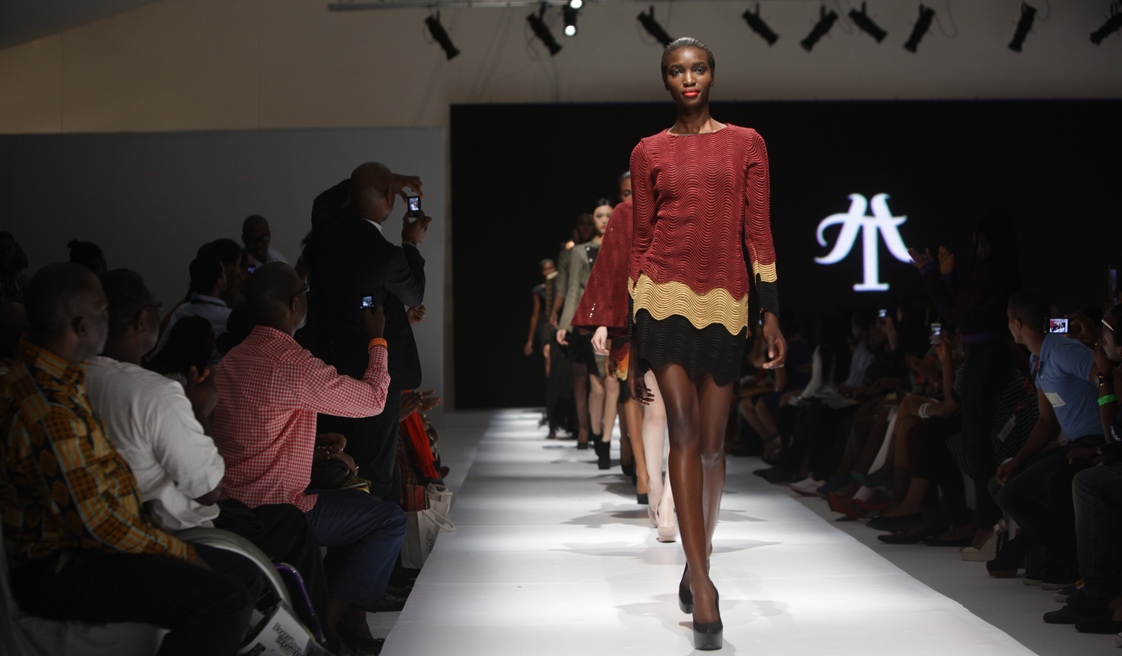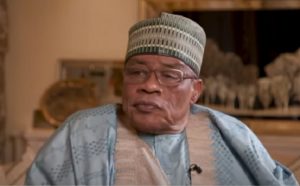Conversations about Nigeria’s fashion industry tend to focus on the luxury and mid-market segments, ignoring thousands of value brands that represent a large volume of the industry. This value segment serves by far the largest number of people, and though they may be lesser-known than their premium rivals, brands like 21 attires and Canill who manufacture and sell thousands of units a month have proven this to be true.
All three segments are essential for this stage of Nigeria’s market; income levels are still relatively low, so it is no surprise that, according to Mckinsey, 55% of Nigerians are price conscious. Nevertheless, society remains aspirational, explaining why as much as 44% treat themselves to more expensive items.
How big is the Nigerian fashion Industry?
Within a decade, Nigeria’s fashion industry has grown in size and sophistication, attracting global attention. Going by GDP data from the National Bureau of Statistics (NBS), the “textile, apparel, and footwear” sector has averaged growth of 17% since 2010. This rise has been fuelled by an increase in demand but also partly by unprecedented initiatives that continue to edge Nigeria into the global fashion consciousness. Events such as Lagos Fashion Week have championed this movement through their anticipated annual runway shows and incubator-style techniques used to grow brands.
One of these brands is Kenneth Ize, a menswear designer who started off winning the ‘Fashion Focus’ prize and is currently a finalist for the prestigious LVMH prize. He is also one of the first Nigerians to be stocked at Browns, an iconic luxury fashion retailer in the UK that has helped launch global brands like Alexander McQueen. Even the UK Government has expressed interest in the industry, as Prince Charles, the Prince of Wales, hosted Eki Orleans and Nkwo Onwuka, two prominent Nigerian designers, in 2018.
Despite all this, many fashion commentators continue to criticise the pace of market growth of the industry, and with good reason. The global fashion industry is worth over $2.5 trillion, with Africa’s share estimated at less than 1% of that total. Meanwhile, Euromonitor suggests that the Sub-Saharan fashion market is worth $31 billion, with Nigeria accounting for 15% of that ($4.7 billion). This is materially lower than South Africa’s share ($14.4 billion), even though Nigeria has nearly four times as many people.
Furthermore, the small size of the market cannot be attributed to Nigerians’ taste for foreign fashion. A Mckinsey survey found that only 11% of respondents considered international brands to be more fashionable than local brands. While research like this presents a case for a thriving local industry, there is still an apparent disparity with reality: roughly 60% of the clothing sold on Jumia, Nigeria’s largest online fashion marketplace, are imported.
Using credit to unlock the value chain
Rather than focus on market size, Nigeria would be better-served trying to address challenges across the value chain, from farmers and textile mills that provide raw materials, to manufacturing, and even to marketing and logistics.
Presently, each part of the value chain has severe flaws. For example, cotton farming in Nigeria is currently at its lowest, and despite rhetoric that suggests otherwise, textile manufacturing in the country remains minimal. The latter fact underpins policies like the Central Bank of Nigeria’s decision to include textiles in its list of items banned from accessing foreign exchange. Beyond raw materials and manufacturing, the fashion industry also suffers from a shortage of capital and quality human resources.
Addressing these issues would unlock gains across the industry for different stakeholders: consumers, small businesses, premium brands, and large-scale manufacturers. And, of course, the broader economic effects are potentially significant—Cambodia’s fashion and textile industries contribute 15% to its GDP while 70% of industrial exports from Sri Lanka are fashion items.
One good place to start would be access to credit. Credit solutions are particularly crucial as bank loans to the sector are currently insignificant and difficult to attain. That being said, the Central Bank of Nigeria (CBN) and Bank of Industry (BoI) are two institutions that have attempted to bridge this gap.
The CBN established a fund that extends single-digit interest loans for fashion businesses. However, the scheme is very narrow in what the loans can cover. A few prominent designers have complained that the scheme covers overhead costs such as rent and doesn’t actually allow them to invest in their products or processes. Ade Bakare, Ifeoma Obidike, and Ose Okpamen are just a few designers that have discussed the ongoing challenges with accessing credit in the fashion industry.
There are alternatives to traditional development finance. More flexible government grants and fashion and focused venture capital are just two examples. Where available, such approaches have helped designers such as Lady Biba and Ejiro Amos Tafiri.
Exploiting changing global dynamics
By getting our house in order, Nigeria can take advantage of global economic dynamics. Many businesses have shut down in recent years, buckling under the pressure of high infrastructure costs, low consumer demand, and an unstable currency.
Yet there are slight green shoots of a manufacturing revival in the country. The Nigerian Ministry of Industry, Trade and Investment launched a ‘Nigeria Industrial Revolution’ plan to build the manufacturing GDP in industries such as textile and automobile assembling amongst many others. Within the last two years, capacity utilisation has grown from 29 percent to 50 percent, with nearly 8,000 jobs created. This has made it easier for brands such as Maki O and Ize to source for locally-made fabrics such as Adire, Aso-oke, and Oja.
In addition, Nigeria may be able to attract foreign direct investment. On a recent visit to China, three out of nine manufacturers I visited were setting up shop in Northern Nigeria, encouraged by the support for the textile industry provided by Governor Abdullahi Ganduje in Kano State. In 2017, Kano State signed a Memorandum of Understanding with a Chinese firm to build a $600 million textile industrial park in the state. Although there have been no visible effects of Ganduje’s policies, even tacit government support can be vital in securing the confidence of international investors.
China has been one of the leading global exporters of clothing and textiles since the 90s, holding 40% of the global market share, but rising costs of production and changing economic dynamics (from investment-led manufacturing to services-led consumption) have encouraged some manufacturers to look abroad. The best example of this is Ethiopia, which China is looking to as a manufacturing hub, pouring billion dollars’ worth of investment and expertise into the East African nation. In the same vein, if Nigeria is able to address some of its infrastructural and governance challenges, it has a low-cost environment and labour force to accommodate a similar economic experiment.
The potential of the fashion industry
If the Nigerian government takes the initiative by providing a more suitable environment for fashion and textile businesses to thrive, it could be a way to rebuild the once thriving industries on a national scale. Decades ago, the country had a relatively booming textile sector, but like most other areas, progress died down with the oil boom. Coupled with the Chinese takeover, the industry came to a complete stop.
Reviving the sector is possible, particularly with the introduction of new policies and improving credit solutions to creative industries. Furthermore, investment in infrastructure and demographic data would help fashion businesses to understand and serve their markets better. The government’s mistake of neglecting the sector in the past stemmed from the idea that it was not a viable one. International markets and even markets closer to home such as Ethiopia and have proven otherwise.
The sector has an incredible chance at growth if managed strategically. Furthermore, if the industry is invested in purposefully and sustainably, it has incredible potential to empower many individuals and in the long run, and vastly improve the Nigerian economy.
Wunmi Akinsola is a Category Manager at Nigeria’s largest apparel marketplace. Subscribe to read more articles here. You can also subscribe to our WhatsApp channel for daily analysis.




